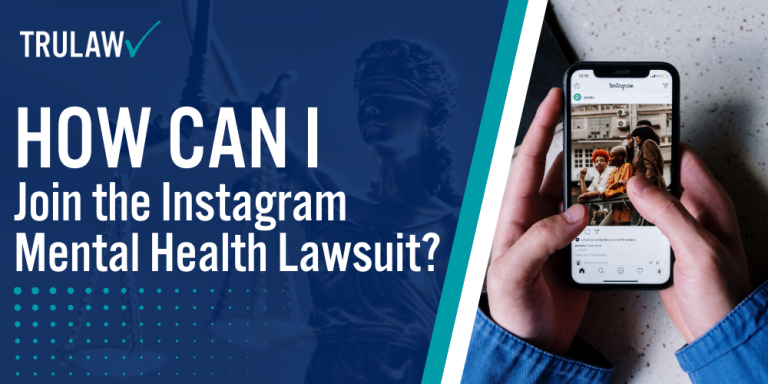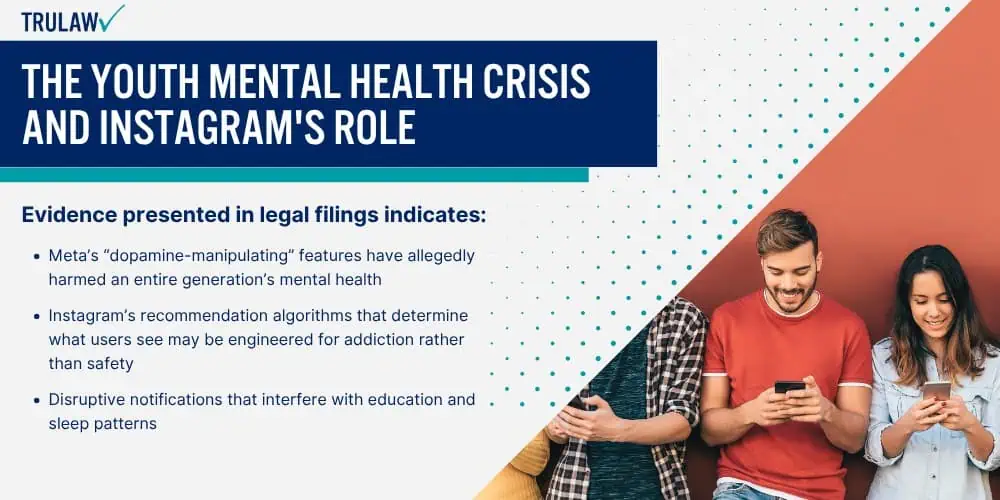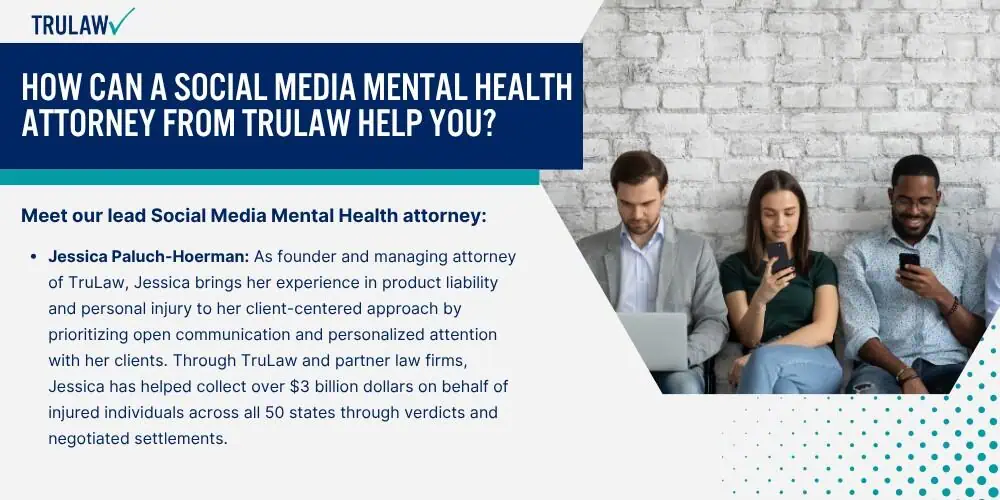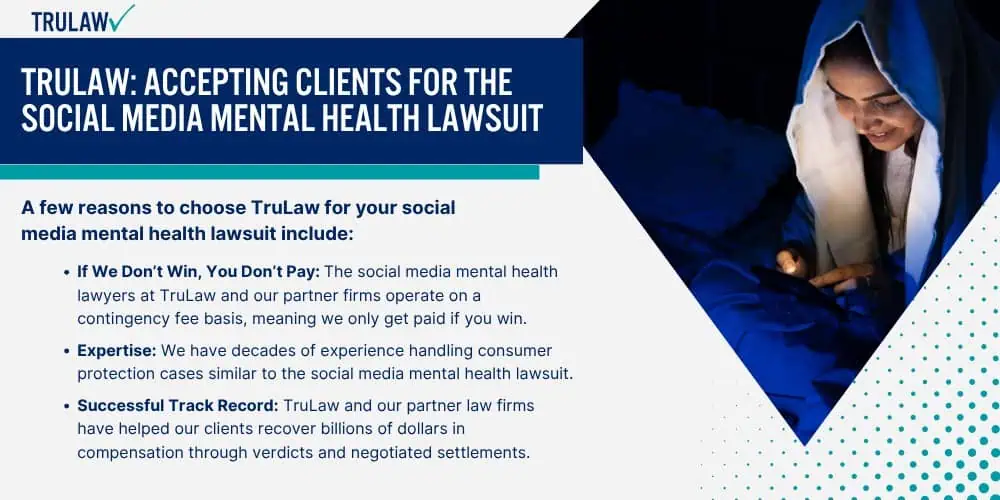The Instagram Mental Health Lawsuit targets the harmful effects Meta’s social media platform has allegedly had on users’ psychological well-being.
Multiple lawsuits claim Instagram deliberately designed addictive features that harm mental health, particularly among young users.
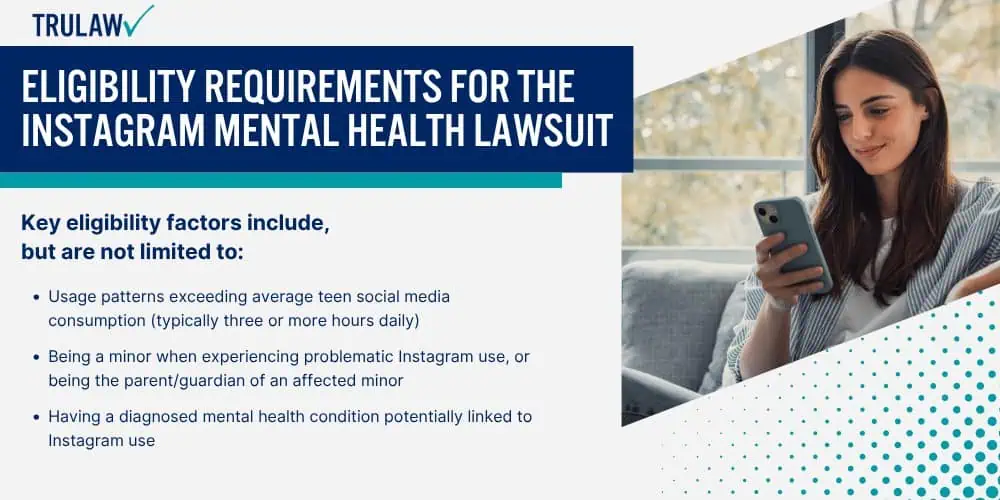
These legal actions seek compensation for those affected by problematic Instagram use.
Who Qualifies as Affected Instagram Users for Legal Action?
Users who may qualify for the Instagram mental health lawsuit must meet specific criteria to be considered eligible participants.
Key eligibility factors include, but are not limited to:
- Usage patterns exceeding average teen social media consumption (typically three or more hours daily)
- Being a minor when experiencing problematic Instagram use, or being the parent/guardian of an affected minor
- Having a diagnosed mental health condition potentially linked to Instagram use
Parents and legal guardians may file claims on behalf of minors who have experienced mental health problems potentially caused by Instagram.
The lawsuits particularly focus on young users who may have been more susceptible to the platform’s allegedly harmful features.
Documenting Mental Health Effects of Social Media Addiction for Your Claim
Properly documenting the connection between Instagram use and mental health impacts is fundamental to supporting a successful lawsuit claim.
Important evidence to gather includes, but is not limited to:
- Proof of Instagram account usage, including screen time reports or usage history
- Medical records showing diagnosed conditions like depression, anxiety, eating disorders, or sleep problems
- Documentation of treatment received for these conditions
- Expert witness testimony linking the platform use to mental health outcomes
- Records showing changes in behavior, school performance, or social interactions
The lawsuits reference internal documents released by whistleblower Frances Haugen in 2021, which revealed Instagram’s own research showed the platform worsened body image issues for teen girls.
These documents support claims that Meta knew about potential harms but prioritized engagement and profits over user well-being.
A coalition of U.S. state attorneys has filed lawsuits against Meta, accusing the company of engineering addictive features and collecting data on children without proper consent.
Individual and class action lawsuits continue to develop across the country as more information about social media’s potential harmful effects emerges.
